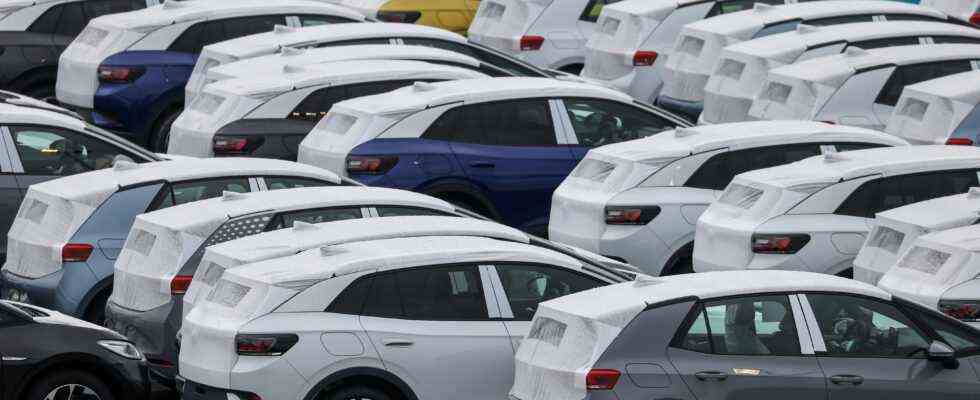Status: 09.02.2022 1:58 p.m
After the historic low last year, German car manufacturers expect sales to increase by seven percent in 2022. That would be the second lowest number of new registrations since reunification.
For the current year, German car manufacturers are expecting sales to recover after the low point in 2021. For 2022, the German Association of the Automotive Industry (VDA) expects around 2.8 million new registrations in Germany. That would be seven percent more than in the previous year, as VDA President Hildegard Müller announced at the association’s annual press conference.
If this forecast comes true, sales would still be significantly lower than in the years before the pandemic, when more than three million new cars usually hit the streets. Last year, the number of new registrations fell to its lowest level since 1985. Even during the economic and financial crisis, annual sales had reached at least 2.9 million. The industry set an absolute record in 1991 with almost 4.2 million cars.
More semiconductor and battery production required in Europe
With their forecast, the German car manufacturers are less optimistic than the foreign manufacturers who are members of the Association of International Motor Vehicle Manufacturers (VDIK). This interest group had forecast sales of three million cars for 2022. However, the association had calculated the estimate published in December on the assumption that the supply of semiconductors would normalize.
VDA President Müller, in turn, called for more speed in setting up European semiconductor and battery production. “If Germany also wants to be the world market leader of the future, then it needs to set up semiconductor factories now,” she said. “Initial plans for the expansion of battery production in Germany and Europe already exist. It is important that the plans are implemented promptly so that the added value for the automotive industry can be maintained in Europe.”
Too few charging stations
At the same time, Müller criticized the sluggish expansion of the charging infrastructure for electric cars, saying the gap was getting bigger instead of smaller. If Germany keeps up its modest pace, only around 160,000 charging points would be reached in 2030 and thus not even a sixth of the targeted million. In order to supply the rapidly growing number of electric cars, the expansion of the power grid must also be pushed ahead with more determination, says Müller.

